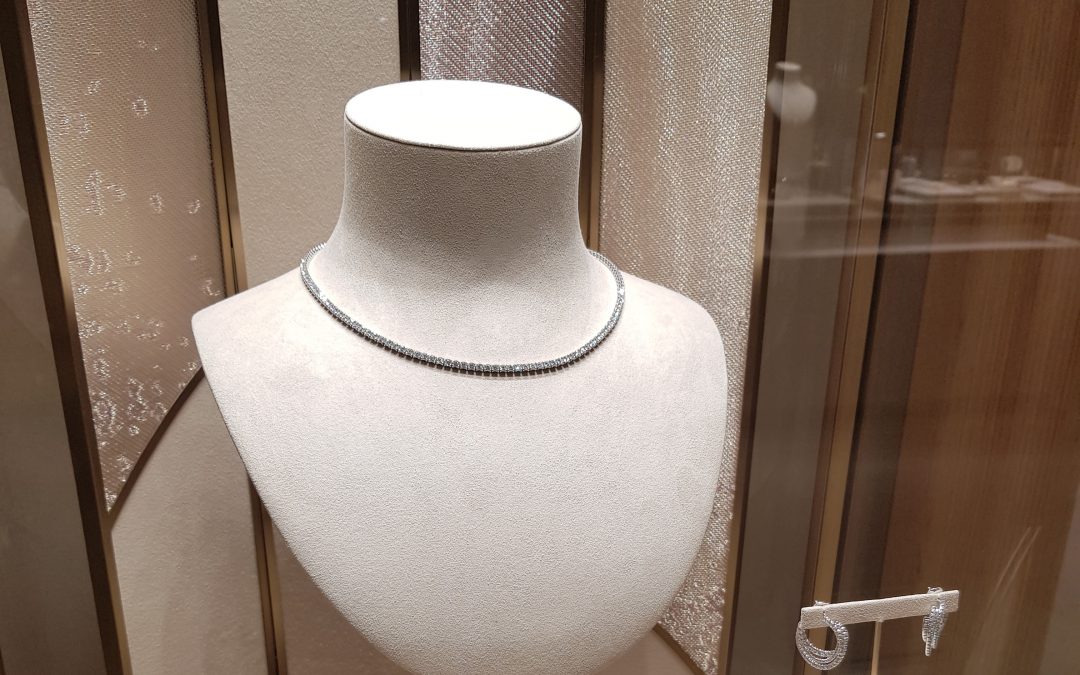Sometimes facts are crazier than fiction. After a rather unfortunate combination of circumstances, a Rotterdam subdistrict court recently ruled that a lady had to return the wedding gift to her niece to De Bijenkorf or pay the department store €40,000.
De Bijenkorf had priced a Cartier diamond necklace a bit too competitively: €402 instead of the actual price of €40,200. The lady had seen this golden opportunity – the ‘Panthère de Cartier’, in white gold, with 176 brilliantly cut diamonds, onyx and emeralds at 1.23 carats – and immediately seized it.
More exciting than the ruling itself is the evidence that De Bijenkorf provided to the competent court. According to De Bijenkorf, the online shopping behaviour of the lady showed that she shopped for necklaces regularly and therefore could not rely on the critical typing error.
With this evidence, De Bijenkorf shows the extent to which the department store tracks its customers online. In addition, this evidence fits into a trend. The role of data in evidence in civil procedures is increasing rapidly.
In the aftermath of Christmas shopping, the facts surrounding this unfortunate procedure speak to the imagination. The lady in question makes it all even more interesting. She had simply searched for ‘panther’ and ‘necklace’ via Google because her niece loves panthers, and it just so happened that on 30 March, the unintended super sale appeared on the website of De Bijenkorf.
She purchased the jewel immediately, received an order confirmation by e-mail and picked up the diamond panther on the next day in the Cartier boutique of the Amsterdam location of De Bijenkorf. How was she supposed to know that De Bijenkorf had made a typing error? Moreover, she can no longer return the pendant, because her niece lost the jewel after her wedding day.
Customer espionage
The verdict of the subdistrict court shows that De Bijenkorf only offered to refute the story of the lady with the version of its ‘Customer espionage’ department on the hearing of 22 October rather than in any previous documents.
So almost seven months after the transaction, De Bijenkorf offered to prove that the Internet behaviour of the lady is not in line with her statement. According to De Bijenkorf, (its) research shows ‘that Cartier products have regularly been searched for from the IP address from which the necklace was ordered’.
But, there is more: ‘in addition, there were also searches for Gucci products that fall in the same price category’. Unfortunately, the verdict does not go into this evidence any deeper, because based on other arguments, the district court rules that the average consumer should have understood that such a Cartier diamond necklace is a bit more expensive. Possibly, the story that the niece had lost the necklace on her wedding day in Morocco also caused the judge to raise an eyebrow.
Internet address
Nevertheless, the evidence raises the question of how De Bijenkorf can retrieve what Internet address a necklace was ordered from almost seven months after the fact, and especially what parts of the website the Internet address in question has also visited.
De Bijenkorf says it stores cookies for a maximum of six months. How could the retailer offer this investigation almost seven months later?
Just like any other website, De Bijenkorf places cookies on the computers of shoppers who visit the website in order to track their Internet behaviour. The privacy policy stipulates that De Bijenkorf stores cookies for a maximum of six months. So how could De Bijenkorf offer this investigation almost seven months later?
In addition, a visitor must always provide unambiguous and fully informed permission for tracking cookies based on our strict telecommunications and privacy laws. If the lady had not accepted that De Bijenkorf systematically monitors her online search behaviour, then De Bijenkorf could never have provided this evidence. Most likely, De Bijenkorf also could not have provided the evidence if it had strictly followed its own policy for retention periods of surfing behaviour.
Apparently, De Bijenkorf not only used our data tracks for personalised advertisements, but also to create evidence in legal procedures. From diamond necklaces to procedures that involve billions, our digital tracks come up in court more and more, in order to prove where you were, what an employee does or to show that a counterparty must have known something, in spite of their own statements.
Privacy rules
The Supreme Court and, in its footsteps, all civil courts, almost always prioritise the discovery of truth over the legality of the evidence provided in their judgments. The criminal court is much more principled in that regard, because the fundamental rights of citizens traditionally play a stronger role in government intervention.
As Internet users, we click ‘agree’ a hundred times a day, allowing future parties in procedures to track us.
So the court would give little weight to a defence that De Bijenkorf violated the strict privacy rules. The lady can complain with the Dutch Data Protection Authority, but they are busy as it is and will probably just send De Bijenkorf a strict letter. If the court did assess the evidence, De Bijenkorf would still have had a head start on the lady.
Data is increasingly decisive in civil cases. As Internet users, we click ‘agree’ a hundred times a day without thinking about it, allowing dozens of unknown advertisement networks and future parties in procedures to track us.
We are all shoppers, employees, and perhaps at some point, a party in court. In 2019, the time has probably come to start being a bit more careful about agreeing to online tracking. You cannot imagine the insane procedures you may one day be faced with.
This article was published in Het Financieel Dagblad and written by Axel Arnbak, lawyer at De Brauw Blackstone Westbroek and researcher at the Institute for Information Law, University of Amsterdam.
